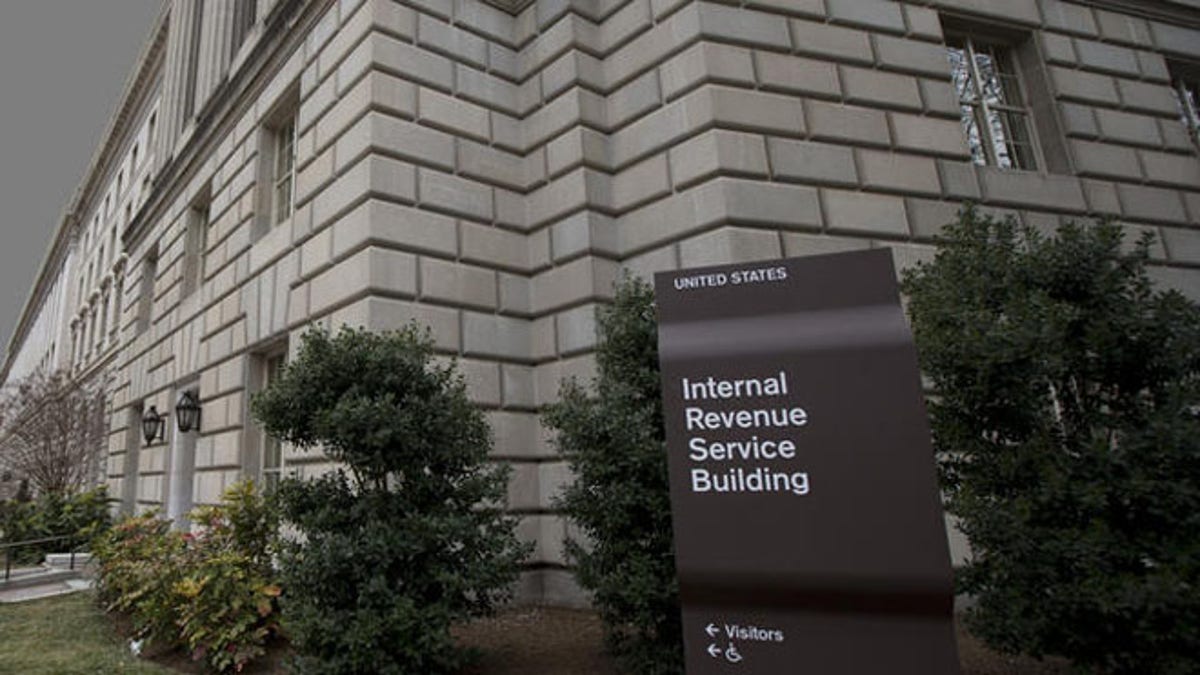
Shown here is the IRS headquarters in Washington, D.C. (AP)
As President Obama launches into the next phase of budget negotiations with Congress, recent estimates may lend credence to Republican claims that the federal coffers are well fed on taxes.
The Congressional Budget Office estimates the federal government is on pace to bring in a record $2.7 trillion in tax receipts this fiscal year.
The increase reflects a steady post-recession rise in revenues. They ticked up 6 percent in 2012, but according to the CBO could jump 11 percent in 2013.
The expected tax boost comes after Congress and the White House struck an eleventh-hour deal at the start of the year that allowed for an increase in tax rates for top earners, and for the expiration of a 2-point payroll tax cut. The agreement will play a big role in boosting revenues this year -- and is also the No. 1 reason cited by Republicans for not wanting to agree to more tax increases as part of a new budget deal.
"The president got $650 billion of higher taxes on the American people on January the 1st," House Speaker John Boehner told NBC's "Meet the Press" over the weekend. "How much more does he want?"
Obama, though, said at the start of the first Cabinet meeting of his second term Monday that he wants to continue to push for "the kind of balanced approach of spending cuts, revenues, entitlement reform that everybody knows is the right way to do things."
According to historical figures from the White House, the last tax revenue record was set in 2007, when the government raked in nearly $2.6 trillion. By 2009, tax revenue took a dive, before gradually building back up.
The CBO shows that, as a percentage of GDP, revenue is still below the 40-year average of 18 percent. The 2013 figure would represent 16.9 percent of GDP -- a full point higher than it was the year before.
The IRS has benefited from a bounty of sources, from increases in corporate income taxes to increases in estate and excise taxes.
Meanwhile, spending is on pace to hit $3.55 trillion in 2013, roughly what it was in 2012. According to the CBO, that represents 22.2 percent of GDP -- "a share that is still larger than in any year between 1986 and 2008."
While Republicans say spending is the problem, both sides agree that cutting discretionary spending alone -- or the annual spending that doesn't go to programs like Medicare, Medicaid and Social Security -- will not solve America's debt and deficit crisis.
With the enactment of the sequester, Congress will cut deeper and deeper into discretionary spending. But costly entitlements will continue to grow, driving up the U.S. debt and also the annual interest taxpayers pay on that debt.




